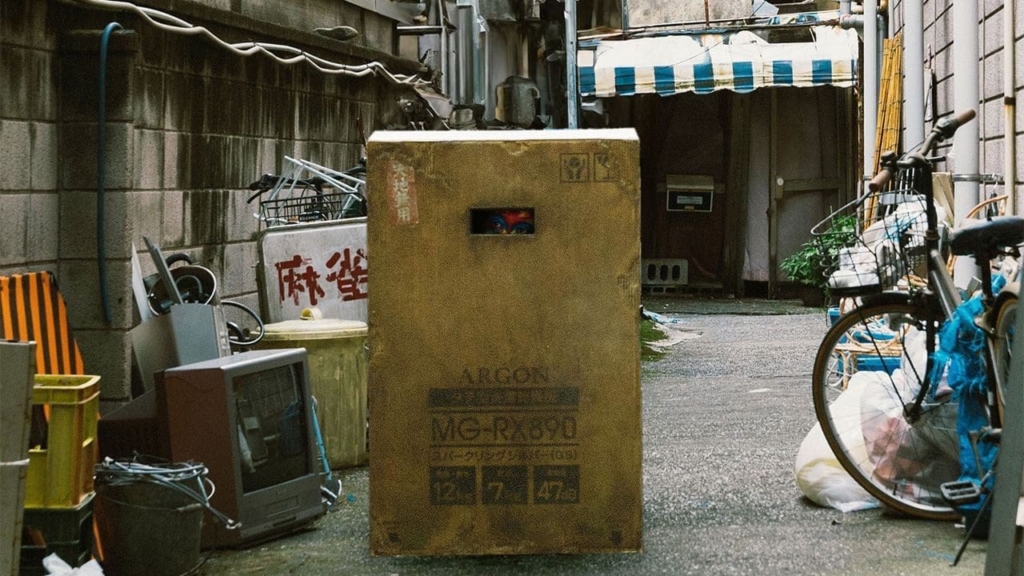
The Box Man (箱男 / Hako Otoko) – 2024
Fandor | Coming Soon | Updated 6/27/2025
Film Details
Director: Gakuryū Ishii
Screenplay: Gakuryū Ishii, Kiyotaka Inagaki
Based on: The Box Man (1973 novel by Kōbō Abe)
Cast: Masatoshi Nagase (Myself), Tadanobu Asano (Fake Doctor), Koichi Sato (General), Ayana Shiramoto (Yoko), Yūko Nakamura (Detective), Kiyohiko Shibukawa (Badge-Wearing Beggar)
Music: Michiaki Katsumoto
Cinematography: Hideho Urata
Editing: Banri Nagase
Production Companies: Happinet Phantom Studios, Cogitoworks
Producers: Keisuke Konishi, Tomohiko Seki
Runtime: 120 minutes
Country: Japan
Language: Japanese (with subtitles)
Genre: Psychological drama, surrealism
Premiere: Berlinale Special – February 17, 2024
Festival & Release
Premiering at the 74th Berlin International Film Festival in the Berlinale Special section, The Box Man was later featured at Japan Cuts in New York and released theatrically in Japan in August 2024 with a PG-12 rating.
Synopsis
In contemporary Tokyo, a man who lives with a cardboard box over his head—known only as “Myself”—spends his days anonymously observing the world. What begins as voyeuristic retreat turns into a psychological game as he encounters a series of cryptic figures: a fake doctor, a mysterious woman, a military man, and others who seem to share his obsession. Reality begins to blur as the box becomes a portal into paranoia, identity loss, and existential dread.
Production Background
Director Gakuryū Ishii first secured the rights to adapt the novel in 1997 but the project was shelved. More than two decades later, and on the 100th anniversary of Kōbō Abe’s birth, the film was finally realized with many of the original cast still attached, including Masatoshi Nagase.
Style & Themes
- Surrealism & Absurdism: Influenced by Kafka and Beckett, the film leans heavily on visual metaphor and philosophical riddles.
- Voyeurism & Disconnection: Explores how detachment from identity can lead to both freedom and madness.
- Visual Duality: Uses a mix of black-and-white and color film, as well as shifting aspect ratios and tonal shifts in sound design.
- Modern Relevance: The box becomes an eerie metaphor for living behind screens and avatars in a digital society.
Critical Reception
Critics have praised the film’s bold visual style and psychological ambition. Lida Bach (Movie Break) called it “a psychological labyrinth of fetish, fixation, and voyeurism.” A Rabbit’s Foot highlighted its timely parallels to screen culture and its “provocatively troubling message about observation and isolation.”
Why It Matters
A meditation on perception, identity, and alienation, The Box Man is one of the most ambitious literary adaptations in recent Japanese cinema. Long thought unfilmable, Ishii’s version embraces the novel’s ambiguity and turns it into an atmospheric, mind-bending experience for the modern age.
Explore Further
- Read Kōbō Abe’s original 1973 novel.
- Watch post-screening Q&As from Berlinale or Japan Cuts.
- Compare with Ishii’s earlier works like Electric Dragon 80.000 V for stylistic continuity.







